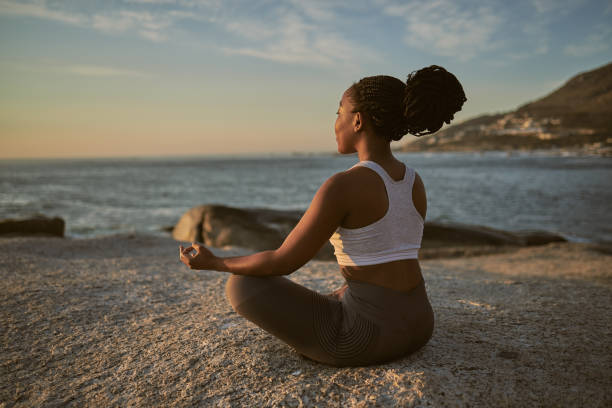Why Meditation Works
It’s well known that excess stress can raise your blood pressure to an unhealthy level, even if you’re otherwise physically fit. Studies of general relaxation techniques found little evidence of a sustained drop in blood pressure, but studies in which patients with mild hypertension used mindfulness-based meditation showed drops in both systolic and diastolic blood pressure.Can Meditation Replace Your Blood Pressure Medication?
Some studies have shown patients who regularly meditate may be less likely to need blood pressure medication or eventually transition to lower doses. While these results seem promising, more studies are needed to prove the theory. You should always consult with your doctor before stopping or changing any prescription medications you take.How Long Should You Meditate?
One study that showed positive results had participants listen to a 20-minute guided meditation every day. Other studies have asked participants to meditate daily for 15 minutes twice a day or up to an hour. If you’ve never meditated before and find it challenging, start with five minutes and work your way up to 15 or 20 minutes over the course of a couple of weeks. Apps or videos are a great way to get started.When Should You Meditate?
Meditation is a good idea at any time of the day. But many experts say that meditation first thing in the morning, before you have the opportunity to become overwhelmed with outside stressors, can help you maintain a routine. Another benefit of morning meditation is starting every day with a feeling of calm before your schedule gets busy. The most important thing is to find a time that works for you, whether it’s with your kids at bedtime or on your lunch break.Frequently Asked Questions
Although blood pressure, on average, was significantly decreased with meditation there was substantial variability in response with the greatest decrease in mean arterial pressure during meditation being 16 mmHg, but also an increase of almost 22 mmHg in another individual.
According to the Japanese Society of Hypertension, taking six deep breaths within 30 seconds significantly reduces blood pressure. This 30-second breathing exercise is a simple and easy way to help manage stress and promote relaxation.







